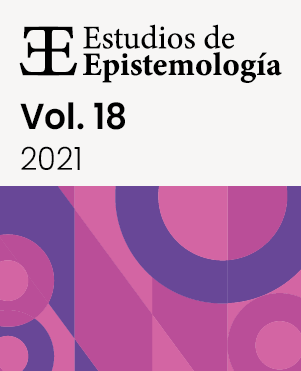Published
2021-05-02
Keywords
- Information Theory,
- Self-reproducing Automata,
- Cybernetics,
- Theorethical Biology,
- Dircursive formation
Abstract
The emergence of cybernetics and information theory, and the diffusion of its key terms to other disciplines, was undoubtedly a product of the new forms of knowledge production that began to be articulated, especially in the period immediately after the Second War in hegemonic countries both in political and military terms, such as the United States (Galison 1994, 232). As Rodríguez (2019, 83-115) indicates, following Foucault, these disciplines are part of a new discursive formation or episteme, to the point that it is justified to affirm that they establish an ontology of information, in the sense of enabling a new field of objects. . On the other hand, they reveal the intimate links that can be established between the construction of knowledge and power relations.
In the following lines, the concepts of negative feedback and information will be briefly developed, as they are closely linked, to highlight how von Neumann's attempt to apply them to the biological sciences led to a conception of organisms as information processors. It will be argued that von Neumann's theory of “replicating automata” was relevant to the incorporation of informational jargon into molecular biology.


